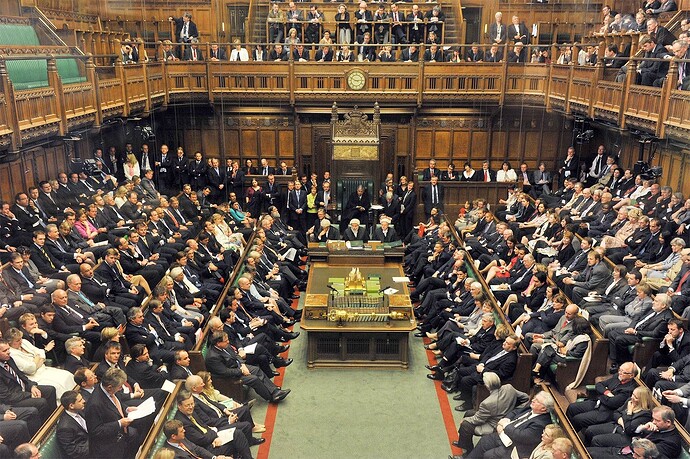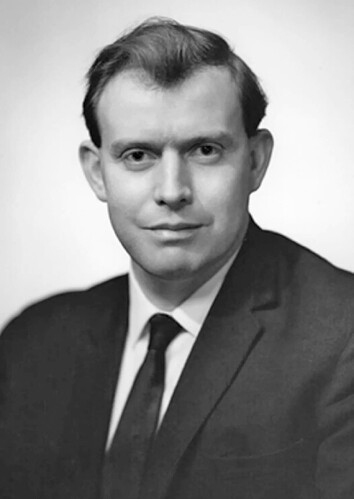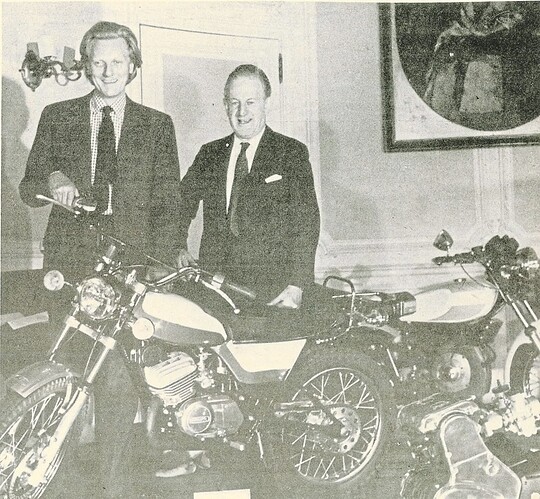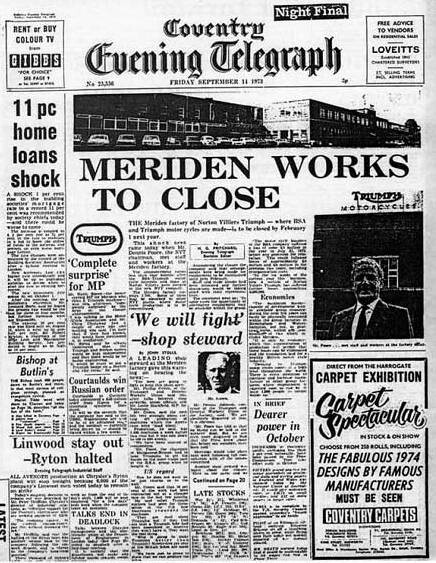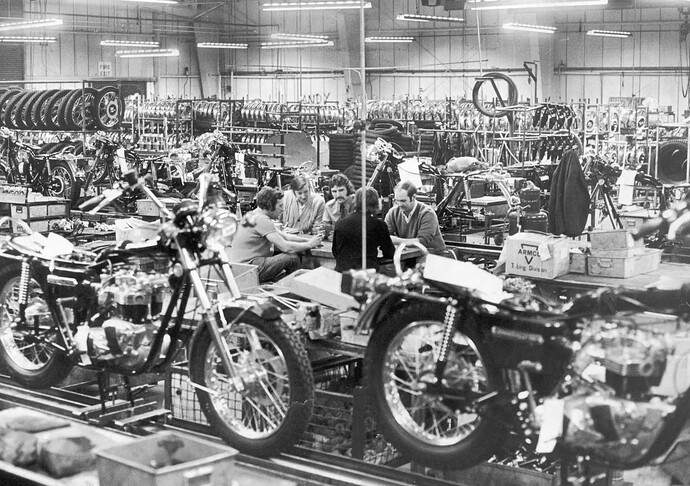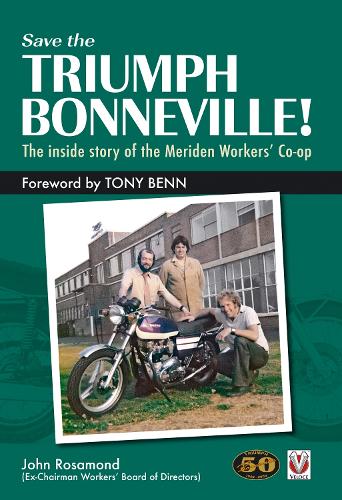In 1975, Eric Varley MP, Labour’s Secretary of State for Industry, stood at the dispatch box in the House of Commons and drove a stake into the faltering heart of the British motorcycling industry.
Two years previously, the Conservative government had been instrumental in creating Norton Villiers Triumph from the smoking remains of the BSA-Triumph Group by providing them with just under £5 million on the proviso that it merged with the ailing Norton-Villiers.
Michael Heseltine, Conservative MP and Denis Poore (right)
Subsequently, Denis Poore decided to close the factory at Meriden. The Meriden workers were naturally unhappy about this and staged a sit-in until the Labour government again put its hand in the taxpayers pocket, handing over another £5 million to set up the Triumph cooperative at the factory.
Demand from the domestic market wasn’t enough to take all the motorcycles NVT could produce per year, not helped by (but not because of) the influx of the Japanese machines. Exports were essential to NVT’s survival.
The House had approved guarantees totalling £12 million based on the expectations of exports, particularly to North America, but foreign sales had dropped dramatically and market share around the world was declining. By the time Mr Varley stood up in Parliament to make his statement to the House, there were 13,000 unsold Triumphs stockpiled.
NVT had pressed for more funds but, without the confidence of the export market, the goverment decided enough was enough. If NVT couldn’t sell those 13,000 motorcycles, they couldn’t justify spending money to make more. The demise of NVT was put down to mismanagement and prioritising short-term profits over long term investment.
Varley informed the house that funding was refused, and the British motorcycle industry died.
